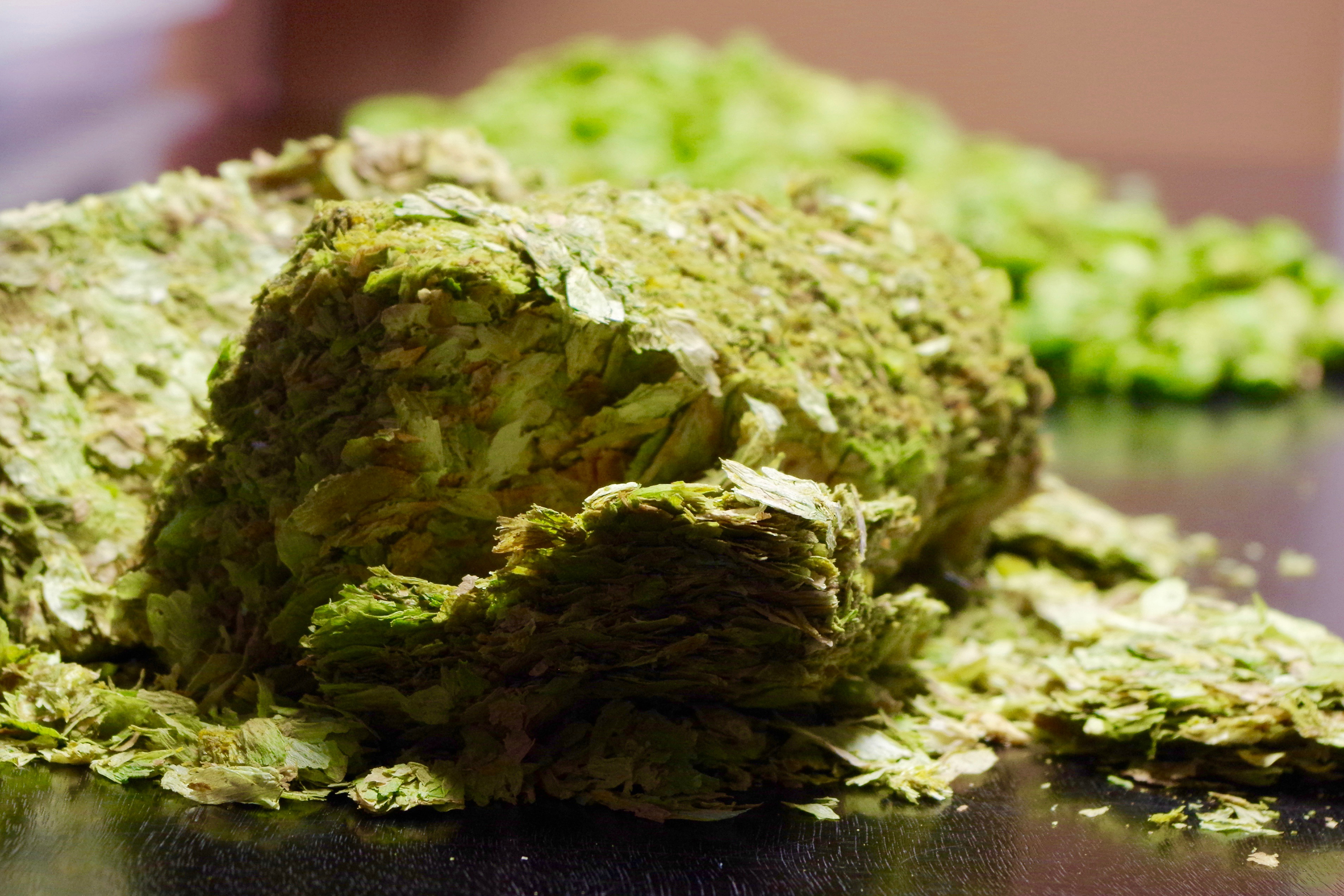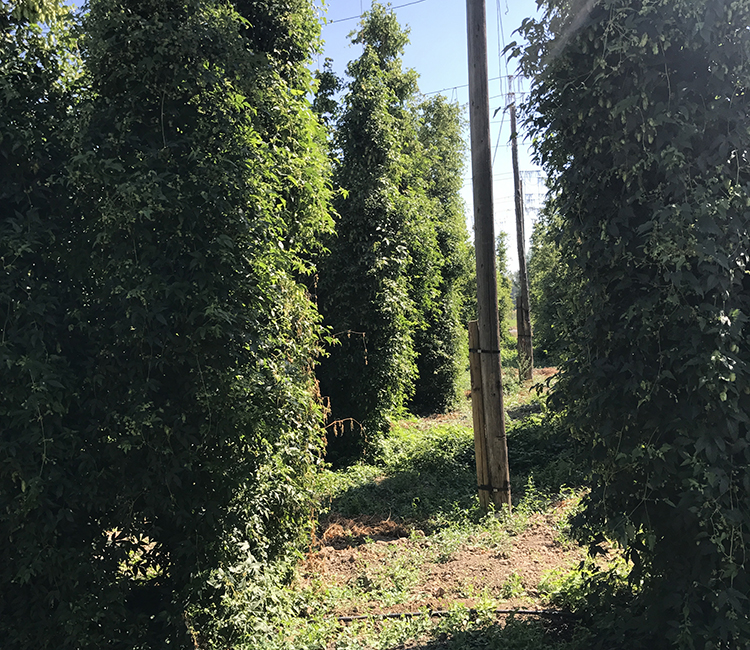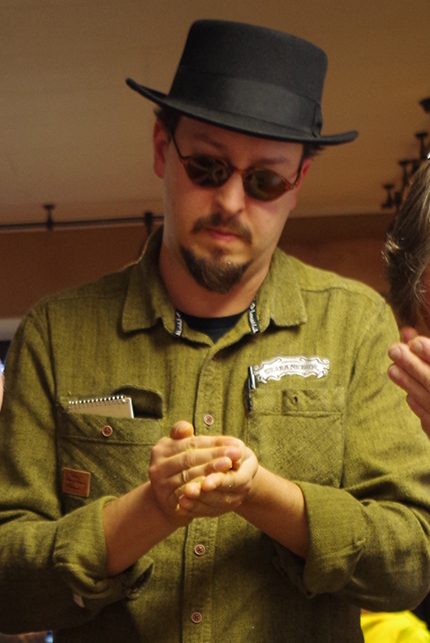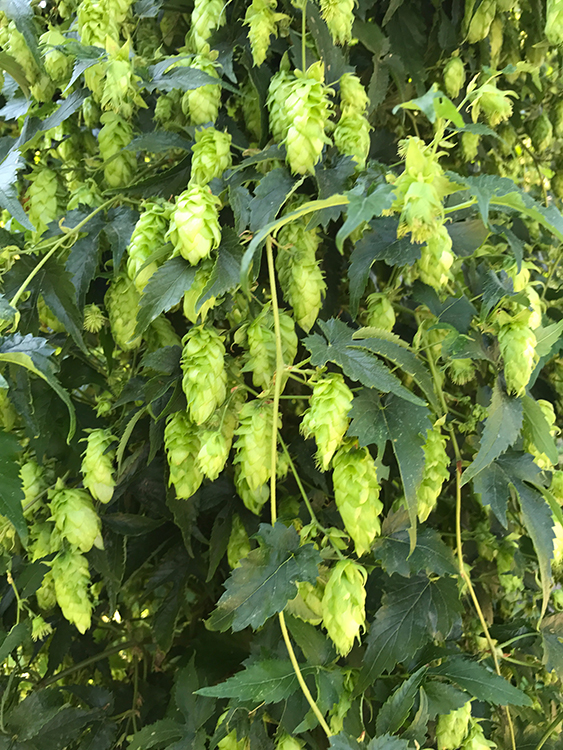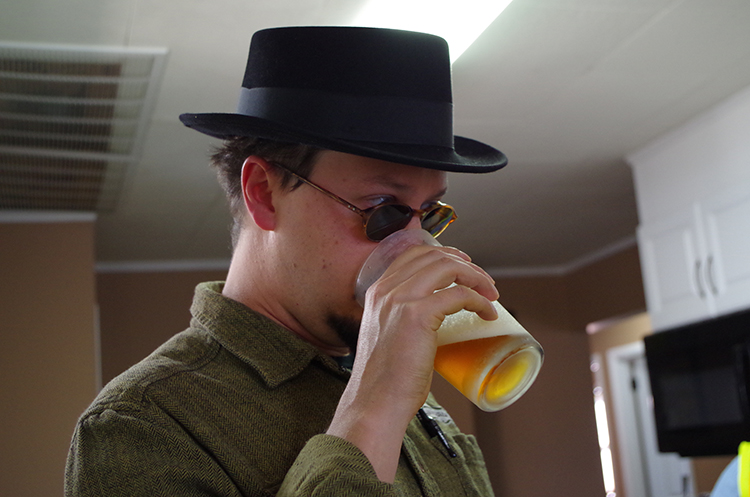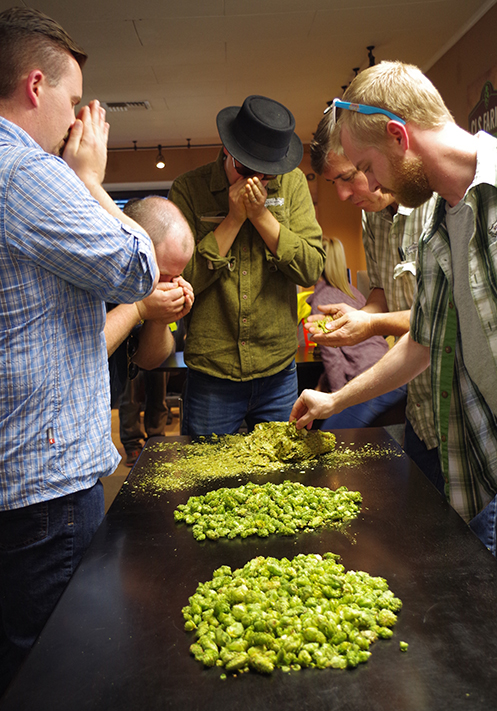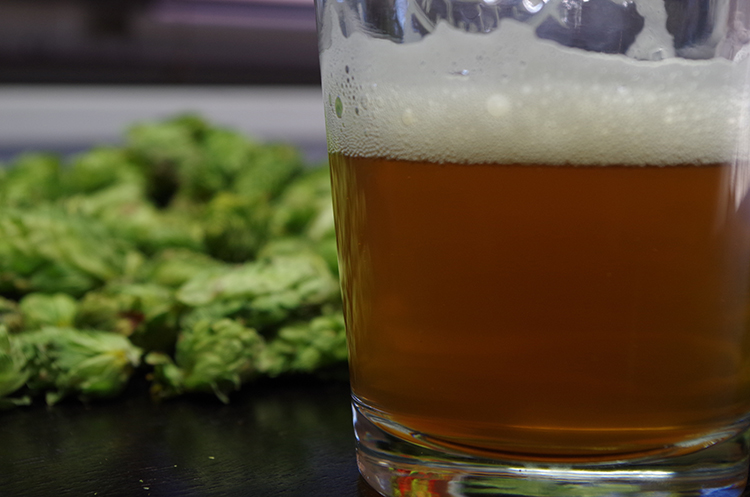In some ways, hops are the puritans of your beer. Of European heritage, they are the bittering agent in your golden glory, preserving your beverage instead of your soul. While hop varieties have certainly expanded in the last 100 years, most still have that puritanical thread running through their lineage. Neomexicanus hops however, are purely American. Embracing the spirit of the wild west, these rebel hops are native to the mountains of New Mexico, untamed and unconcerned about your beer. That’s why they’re likable. Because of their indifference, they have evolved independently of the industry, and as such have developed their own smell and flavor characteristics that are refreshingly different. Not all wild hops are usable for brew purposes, but the ones that are, are unique. Transplanted to the hop yards of the Yakima Valley, Neomexicanus is now beginning its commercial journey into our beers. They’re sidestepping their puritan cousins and flashing a little ankle from under that prim floor length skirt as they stalk across the dusty saloon floors toward the tap handles on the bar. And we can’t wait.
Tom Nielsen, who manages raw material procurement for Sierra Nevada Brewing has sniffed hops from all over the world. Clearly, he has forgotten more about the subtleties of hop aroma and flavor than most of us will ever know. Always on the lookout for something new, he found something in Neomexicanus that was unique, and was kind enough to pen the origin story of the Neo hop, Zappa for us. Many thanks, Tom!
– Foreward by Andreana Gamache
“You may think my hop is funny, but I don’t”
– Thomas Pinto Nielsen, on Humulus lupulus neomexicanus – FZMR2 aka ZAPPA
Growing wild in the mountains of Northern New Mexico, hops have survived naturally for countless generations. The Native Americans in the region say that these mountain hops are for making medicine while the valley hops are for making beverages. There is a distinct difference in the properties of mountain hops and valley hops. The bittering potential in the valley hops, or their alpha acid content, is higher and therefore valued by brewers around the world. The wild mountain hops evolved to have lower alpha acid levels and a different aromatic profile, marked by the higher concentrations of ocimene in the essential oil than in commercially available hops. The flavors and aromas found in these wild neomexicanus hops are largely untapped by brewers, leading to new possibilities and an expansion of the beer flavor spectrum. The medicinal properties of these hops are yet to be completely elucidated and agreed upon, but it turns out they still make great, delicious beer.
Enter Todd Bates, whose mantra is “plants for jobs, jobs for plants,” and his quest to archive all the native hops growing in and around the region of Taos, New Mexico. He found some success in securing several unique wild varietals and replanting them in a homemade hop yard. After some advice from hop industry veterans, he began to try to crossbreed these wild hops with higher alpha, elite commercial varietals commonly used by brewers at the time. Todd wisely also started to cross the wild hops within themselves, producing dozens of elite lines in single hill plots.
I travelled to New Mexico in 2014 and smelled through his experimental hop breeding station, finding what is called FZMR2, Frank Zappa-MultiHead-Rio 2. The three sub-names are designations for distinct clusters of hop plants he found in the mountains. The complete name, FZMR2, denotes how he crossed the wild hop variants with each other and the number stands for which progeny, or seed, he promoted to the hop garden from the greenhouse. Todd’s relentless pursuit of the wild hops and foresight to cultivate them makes him a real champion of these varieties.
The aroma floored me. After nearly ten years conducting beer and hop flavor research at Sierra Nevada, actively looking for the next big thing, FZMR2 was an ambrosial pheromone to my olfactory system. After several rows of lackluster, plebian, run of the mill sniffs in Todd’s hop garden, the trip proved worthwhile once we stumbled upon the aroma of FZMR2 towards the end of the day. A common thread between many of the neomexicanus hops Todd was growing in his garden was a beany, aldehydic note to various degrees of intensity. FZMR2 had the same character in a much more muted way, while adding a thriving complexity and intensity. I still find myself adding descriptors. A unique spiciness, coupled with full-on mango, backed by a sharp citrus, delightful savory, and strong deciduous pine. CLS Farms and I at Sierra Nevada took this hop to the next level: production scale in Moxee, Washington.
Frank Zappa has been a hero of mine since my early teenage years. I quoted Frank in my senior year yearbook quote, “You may think my hat is funny, but I don’t.” Even in high school I had an affinity for hats, sporting a number of hat styles until settling on the black pork pie hat of Walter White/Breaking Bad fame. (For the record, I found my hat on a weekend to Seattle in September 2008 following a hop selection trip to Yakima). Walter White became his alter ego Heisenberg with hat and sunglasses in 2010, and Breaking Bad ended in 2013. I still wear my pork pie, version 2, day in and day out, going on 9 years.
The ironic Zappa/Breaking Bad-New Mexico/Hat trifecta, initially struck when unbeknownst to myself, the evening we arrived in Albuquerque, New Mexico to explore these neo hops was the evening of the Breaking Bad season 6 premier. All over downtown Albuquerque, which is where Breaking Bad is largely set, billboards of Walter White, or Heisenberg, scattered the city. I, naively, was walking down the street getting nods for paying tribute to the local hero by donning my pork pie hat.
So today, 4-plus years after the Breaking Bad season 6 premier, FZMR2 is ready, or what we hope will be strictly commercially available as the varietal Zappa. In this hyper-competitive and creative brewing culture, an homage to the creative genius of Frank Zappa fits the bill. In working with the Zappa family trust, we hope to contribute a portion of the revenue generated from the Zappa hop to a worthwhile cause fitting to the beliefs of Sierra Nevada, CLS farms and the Zappa family. We at Sierra are making our first nationally available Zappa hop beer this fall which will be available in our experimental hop can variety pack this coming January. You’re gonna love it!

